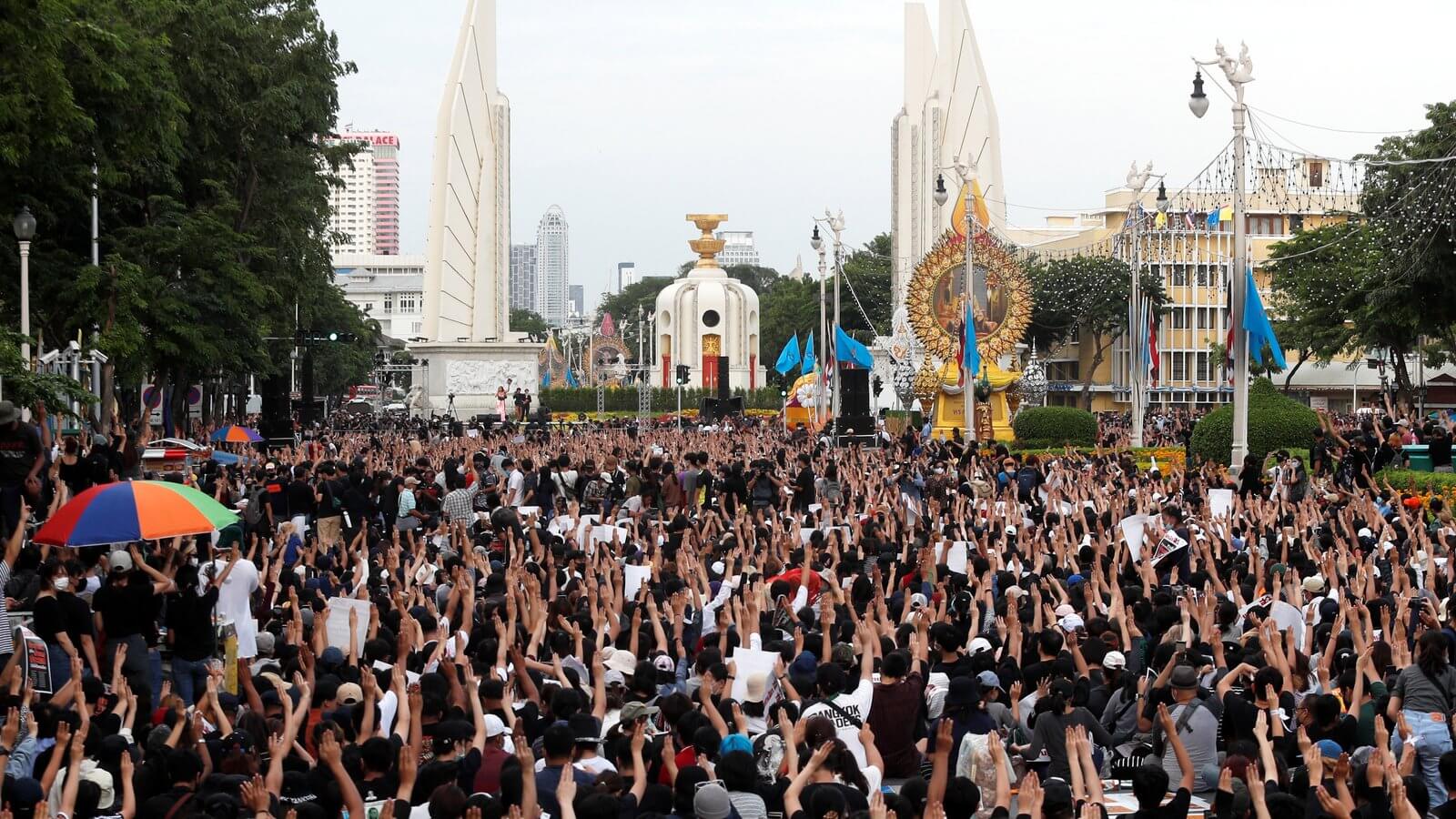Thai parliamentarians on Thursday voted to delay a decision on whether to change the country’s military-backed constitution, as demanded by anti-government activists who have been staging protests nearly every day for more than two months. Instead, the lawmakers decided to set up a committee to extensively study the draft amendments and look at their validity and feasibility.
Pro-government leader Chinnaworn Boonyakiat told reporters that the “vote to accept a motion for constitutional changes is effectively delayed to November”. The announcement triggered an angry response from opposition leaders and protesters, more than 1,000 of whom had gathered outside the parliament to pressure authorities to take action regarding constitutional change and reform of the monarchy. The demonstrators have also called for the removal of current Prime Minister Prayuth Chan-ocha, a former military leader, accusing him of retaining power last year through unfair means, even though he insists that the vote was fair.
The leaders of the protests have reportedly said that they will continue to hold rallies next month if their demands are not met by 30 September. Tattep “Ford” Ruangprapaikitseree, a prominent activist, said the government was attempting to “buy time” by delaying the vote, stressing that it only pointed to the authorities’ disregard of the people’s wishes. Opposition MPs have also echoed similar concerns, with Wiroj Lakkhanaadisorn from the Move Forward Party arguing that the government’s tactics were intended to “deceive” the public.
The rallies are proving to be the biggest challenge to the Thai (monarchical and military) leadership since Prayuth came into power in a 2014 coup. Last weekend saw one of the biggest anti-government protests in the Kingdom, with thousands of people taking to the streets of Bangkok. The people have also demanded an open discussion on the unassailable powers of the monarchy. In Thailand, the monarchy is a sensitive subject, and criticism of the Royals is a punishable offence under section 112 of the Thai Criminal Code, known as the ‘lese majeste law’, which forbids insulting the King. Cited as of one the “strictest” laws in the world, criticism of the monarchy can result in a jail term of up to 15 years, and since 2014 has been frequently used by the Thai military government to arrest dissenters.
Earlier this week hundreds of Thai royalists also marched to the country’s parliament to oppose calls for any constitutional reform, saying that “nothing good” would come out of the proposed amendments, and that it would only benefit politicians.
Thai Parliament Delays Vote on Constitutional Amendments Demanded by Protesters
Instead, the lawmakers decided to set up a committee to extensively study the draft amendments and look at their validity and feasibility.
September 25, 2020

Pro-democracy protesters gather near the Democracy Monument in Bangkok, Thailand, raising their hands in a three-fingered salute on 16 August, 2020. SOURCE: CFR/REUTERS
